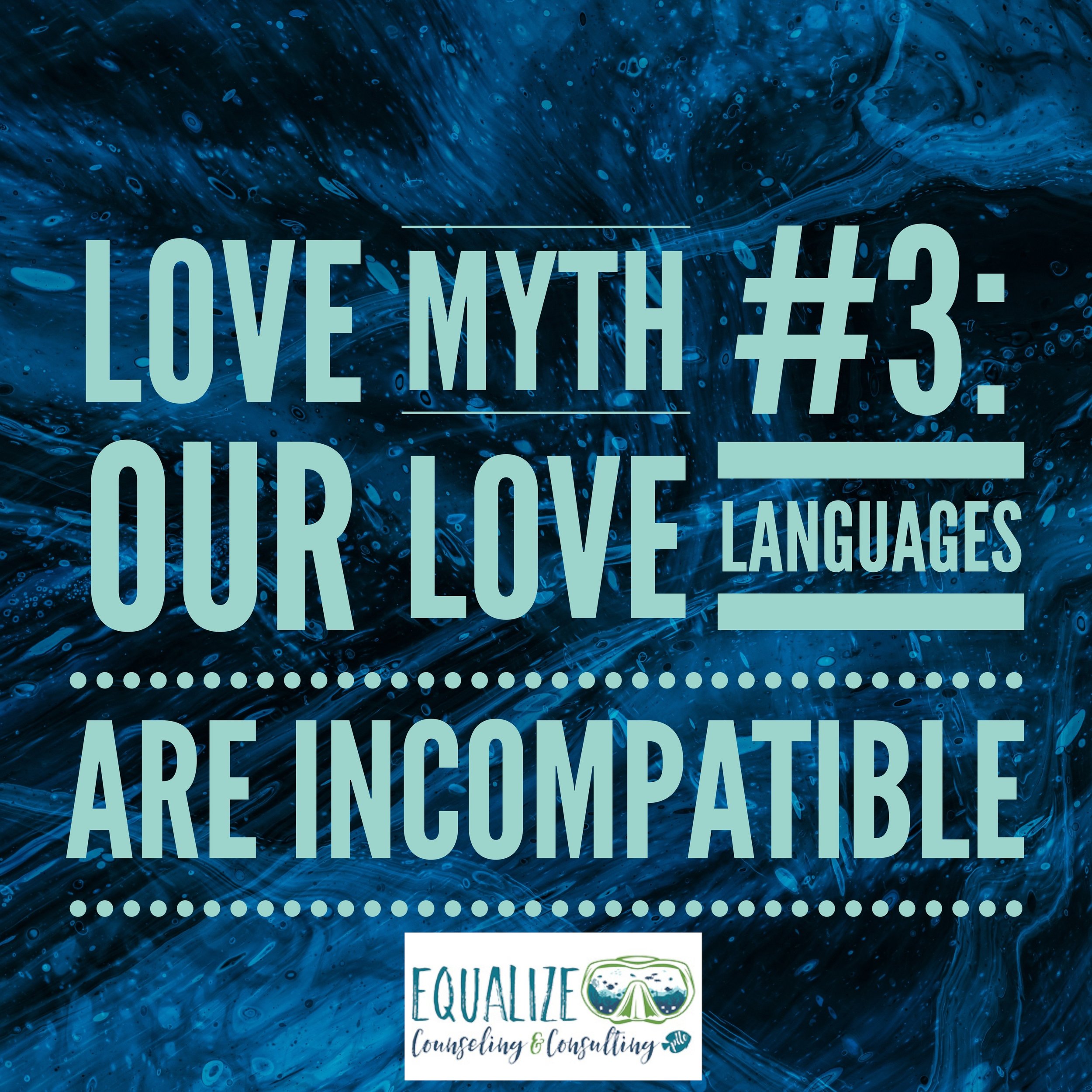Love Myth #3: Our Love Languages are Incompatible
In my work with couples, I love helping them better understand their love languages and how to better relate to one another. Understanding your love languages and your partner’s love languages helps you to know what love languages we need to ask for and give, as well as how. Inevitably, however, I notice that couples tend to misunderstand what the love languages mean in terms of their compatibility.
For example, one thing I see very often in couples counseling is one individual scoring very high in one language while the other scores very low in the same language (and vice versa). I have had so many couples look at their results and then assume they were doomed for various reasons. On several occasions I have had clients assume they are incompatible, some feel that their partner will never be able to give them what they want, and some assume their partner purposefully refuses to give their language. Luckily, the love languages are not indicative of any of these things.
Compatibility
In terms of compatibility, there are a lot of mixed explanations on what actually makes a couple compatible. Arranged marriages in India take into account an individual’s physical attributes, socioeconomic status, and various other factors in order to determine who is coupled. Some people believe in the Zodiac signs and that certain signs will get along better than others. Others believe that common interests are the building block for compatibility. Personally, I ascribe to none of these, but the point is: there is not a clear determination of compatibility or we would use it 100% of the time.
With the love languages, they can change over time (see our blog on Love Myth #1: Love Needs Don’t Change). This means that we may have one language when we start dating that we prefer, a different preference after we get married, and another after we have kids or retire. So, it is a really good thing that these do not determine compatibility.
Intentionality
Regardless of what your primary language means, intentionality is always necessary for meeting our partner’s (or other loved ones) love needs. Whether you have the same primary language or are on opposite sides of the spectrum, we must make sure to give them what they need. This is a good thing because it demonstrates that it does not matter how different your love languages are, you can still give and receive the desired love languages.
With that being said, the closer the love languages are, the easier they may be give, and the more different they are, the more intentional we need to me. For example, someone who has a similar set of love languages to their partner will find it comes more naturally to them and they need less help remembering. They may find that they tend to remember simply in conversations to be more intentional about giving their partner love in the way they desire it. On the other hand, if the love languages are really different, then they may need to set reminders on their phones, makes notes to themselves, or develop a habit that reminds them to love on their partner.
What To Do
So, if you and your partner (or kids, friends, etc.) has very different scores on the 5 love languages quiz, do not worry. It simply means that in this season of life, you may need to communicate more to your loved one about what kind of love you want and how you want to receive that love while you also seek that information from them in order to follow through. As mentioned in another post (Love Myth #2: Love Is a Feeling), love requires us to make purposeful choices to love on those around us and having different love languages makes this challenge a little more necessary in terms of the purposeful part. You can start by bring up the conversation or start modeling the type of love you want to the other person. Studies have shown that modeling can yield results if you stay consistent.

